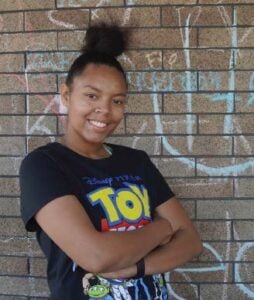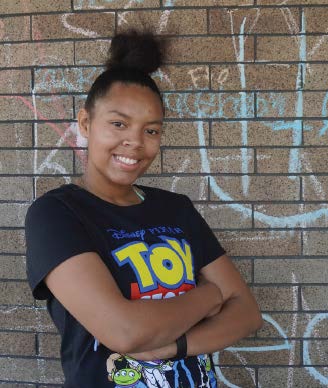Part two of six: Crisis Program
Our community can expect a long term solution
The Crisis Shelter at Huckleberry House never has been, and never will be, simply a temporary respite. While we provide young people in crisis with a safe place to stay and meet their immediate needs. The Crisis Shelter at Huckleberry House never has been, and never will be, simply a temporary respite. While we provide young people in crisis with a safe place to stay and meet their immediate needs for shelter, food, and personal care, the primary purpose of the program is to provide an environment to begin working toward longer-term solutions. The typical stay at the shelter is five to seven days. But we stay connected to the young people long after they leave. Youth build relationships with our counselors, participate in family meetings, and establish ongoing supports that help them continue working toward their family, education, employment, and personal goals.
Meet Brooklyn, A Crisis Program Client

Growing up is hard enough. It’s even harder when you’re not sure where home is.
Brooklyn and her family have always struggled to maintain stable housing. This left Brooklyn doing a lot of couch surfing during her high school years, which put her in some potentially dangerous situations. Scared and frustrated, Brooklyn turned to the Crisis Shelter at Huckleberry House. She stayed at the shelter several times during her senior year. While there, she found more than a warm bed and hot meals. She found the support she needed to set goals for her future and to stay focused on achieving them.
“Stability isn’t just about having a place to sleep at night,” she says. “It’s about having people who love and support you. That’s what Huck House gave me. They really helped with my mental health, and they made sure I made it to school every day and did my homework. They helped me stay motivated to graduate.”
With her newfound support system, Brooklyn did the work to obtain her diploma, bringing her grade point average up over two points in a short period of time. She is now enrolled at Wilberforce University where she is studying mental health rehabilitation.
“I’ve always wanted more for my life, but there were times when it just felt hopeless,” she explains. “I don’t want other kids to have to feel that. I want to do something that’s going to make a difference.”
Brooklyn hopes to become a probation officer after graduation. She wants to use her future profession as a way to connect with other young people who are facing difficulties or who have had a few missteps in life. She wants to help them see a better future and stay focused on achieving it.
“That’s what Huck House did for me. They helped me see what I’ve always wanted for my life and showed me how I could get there. I’m working hard now so I can help other kids who need that same support.”
To learn about the expectations and results of Huck House’s programs, check out the 2019 Annual Report.
Up next, part three: Transitional Living Program
In our next message, you will meet Rose, a current TLP youth.



